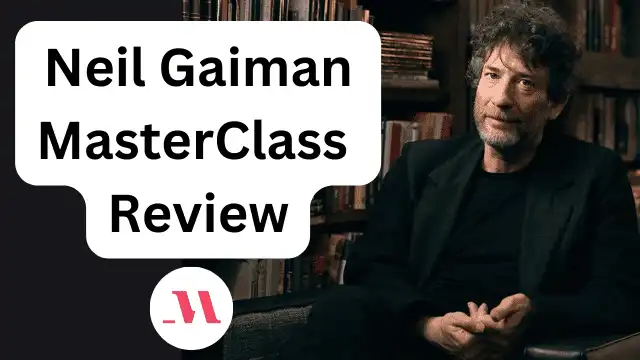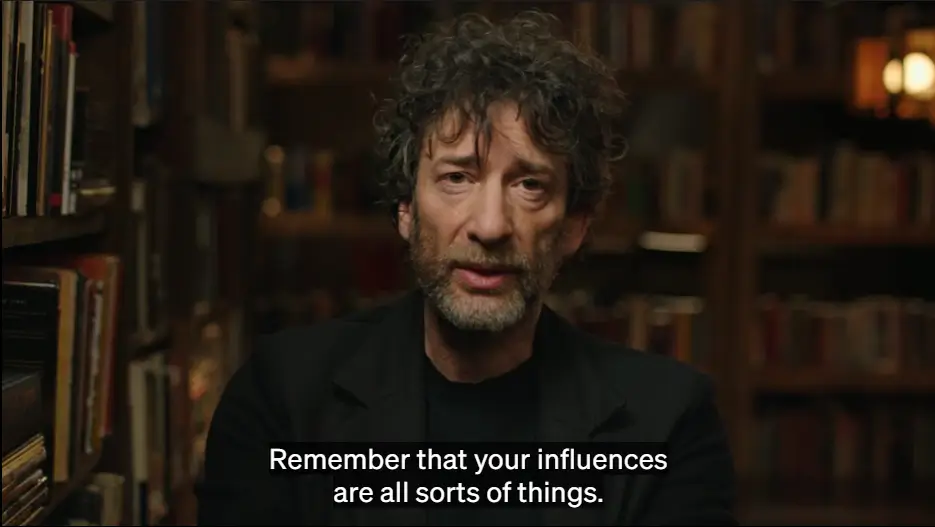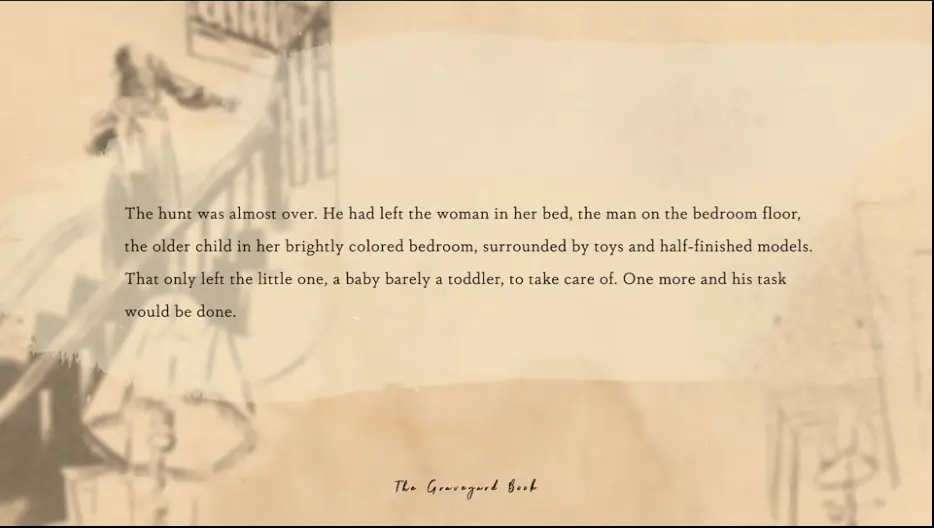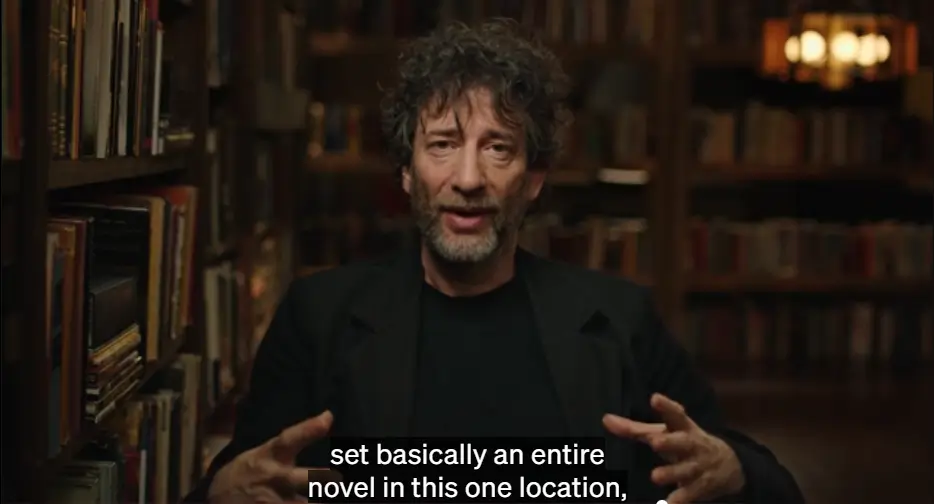Coursera Plus - Get Unlimited Access to 7,000+ Online Courses
Coursera Plus - Get Unlimited Access to 7,000+ Online Courses
Coursera Plus - Get Unlimited Access to 7,000+ Online Courses
I Finished Neil Gaiman MasterClass: This is My Honest Review
Disclaimer: This post is NOT sponsored. Some product links are affiliate links which means if you buy through those links, you won’t pay anything extra and we’ll also receive a small commission on a purchase.

Neil Gaiman Teaches The Art of Storytelling is a class everyone wanting to become a writer ponder taking. Is it everything they expect it to be? Do they feel satisfied when the class ends or are they left feeling cheated?
In this review of Neil Gaiman MasterClass, we will analyze if this fantastic author successfully imparts his wisdom and helps us find the spark necessary to complete a novel.
⏩ Quick Summary: Neil Gaiman MasterClass Review
| Neil Gaiman MasterClass | Rating |
| Content Quality | 4.7/5 |
| Engagement Level | 4.5/5 |
| Instructor Expertise | 4.8/5 |
| Practicality | 4.6/5 |
| Value for Money | 4/5 |
| Community & Support | 3.5/5 |
| Overall Rating | 4.3/5 |
My Neil Gaiman MasterClass review covers:
🤷♀️ Who is Neil Gaiman & why should you learn from him?
Neil Gaiman is a prolific author known for his works like The Sandman series, American Gods, Coraline, and The Graveyard Book. His imaginative storytelling, creative writing techniques, and ability to make even mundane things sound exciting are the reasons why you should take his class. Personally, I fell in love with his works because of his world-building techniques.
👥 Who is this Class for?
The Neil Gaiman Storytelling Masterclass is a great resource If you are just starting to write or struggling with your first novel. Even those who have written a few novels will still find some valuable tips that help them write better. Moreover, you will benefit greatly from this class if you are feeling stuck or have writer’s block, as it enables you to get out of that rut.
👍 Pros and Cons 👎
Perfection doesn’t happen in this world (at least that’s what Gaiman says, and I agree with his view). So, let’s see what makes his class almost perfect and whether the few imperfections make it less enjoyable (I don’t think so).
📚 What You’ll Learn
To put it in a nutshell, you will learn how to write better, use various tools (techniques), understand Gaiman’s process, and pitfalls to avoid. I had this vague feeling I knew Gaiman when I started the class. I was saying to myself ‘I like this guy. He is fantastic at teaching, and it suddenly struck me why he seemed familiar. I have been reading his books without knowing he is the author. He also co-wrote Good Omens. I had watched all those episodes without realizing who had written them. Could I be more oblivious?
Thankfully, his voice was so magnetic that I quickly got over it and became immersed in the lessons. When he said that (to him) fiction is a memorable lie conveying the truth, I thought about it long and hard. It was true; many complex truths are digestible when told in story form. Why else would we go around asking kids, ‘What is the moral of the story?’

Gaiman then discusses the sources of inspiration and subverting a familiar story. I died laughing when I heard his take on Snow White. It’s amazing how a story changes when you look at it from different angles. In essence, you are reinventing the story. The thought experiments he suggests are handy, too.
Neil then tells us his response to where ideas come from. When he said they come from the confluence, my expression closely resembled Dr. House’s ‘huh?’ moment as a response to Cuddy’s ‘Are you being intentionally dense?’. The difference? I was really bamboozled. I got a pretty good grasp of what he was saying once he explained it with a story. The idea of a wolf-chair is ridiculous, but his thoughts that lead up to the beginnings of a plot are incredible and endearing.
The lesson Finding Your Voice is a must-watch lesson for aspiring writers. You learn to figure out the voice that has always been within you and how failures can teach you more than success. As a writer, the most important thing you have to do is make the writers ask ‘And then what happened?’. He has wonderful tips for doing that.

The case study on The Graveyard Book was nostalgic as I was reminded of reading it as a kid awed by the idea that a baby was being raised in a graveyard by ghosts. He uses the first chapter to explain coming up with the characters’ wants and needs and how they drive the plot.
Moreover, The man waxed poetry about short stories. It made me want to dust off one from my collection and just start reading. Perhaps, I will do that once I am done with this review. Who knows, I may even end up writing a short story even if the chances of it reaching a reader are next to nil. His short story Nicholas Was is comprised of just a hundred words, but the impact it had on me is indescribable.
Later, he uses the case study of ‘The March Tale’ to explain how writing short stories can teach you the necessary skills to write full-length novels. It is awe-inspiring to see how he took a small idea and made it into a full-blown short story. He even brainstorms how to build on it.
The best thing about Gaiman is that though he uses his works and characters to reinforce what we are learning, he doesn’t just quote from the book. He analyzes it and breaks it down so that we learn to do the same. He uses the character ‘Delirium’ from Sandman to help us understand the intricate relationship between dialogue and characters.
His concept of ‘controlled insanity’ is by far my favorite description of ‘listening to characters’. He lets the characters say whether they would do something or not all the while being fully aware that he is creating them. His tips for developing the characters are fantastic. You learn how and when characters become ‘people’ through the case study of ‘The October Tale’.

Gaiman paints a compelling picture of worldbuilding. He discusses the mistakes to avoid, urges to control, and what actually should be done while building a world. Moreover, you learn why humor is vital and he provides several tips to experiment with humor. And, if you are often confused about how to define genre, you will find his very clear explanation of what genre is very helpful.
Neil emphasizes the need to push yourself out of your comfort zone and write what you don’t know about to become a better writer. Next up, is an entire lesson video dedicated to writing and scripting comics. He uses his Sandman comics to discuss his process and describe his experiences collaborating with artists for his comics. It is a fun video even though it is the longest in the class.
In the final few lessons, he discusses writer’s block, editing, and the rules for and the responsibilities of writers. You also learn how to cope with rejection and failure. In short, I didn’t regret spending my time watching his masterclass even though I balked at the length at first.
The Neil Gaiman MasterClass workbook is full of excellent writing exercises, reading exercises, and tips for writing your novel. I am confident you will have the will to complete your novel by the end of the class. Moreover, the Neil Gaiman MasterClass subtitles are available in multiple languages so that learners all over the world have a smooth experience. So, go watch the class and master the craft.
💵 Neil Gaiman MasterClass Cost
The Neil Gaiman MasterClass price cannot be named even if the platform allows the purchase of individual classes. But that’s a debate for another day, as you must subscribe to MasterClass’ subscription plans to access any course on the site. The Standard, Plus, and Premium plans are all charged annually and cost $120, $180, and $240 respectively. You can always get a refund (within 30 days) if something about the site displeases you.

👫 What Others Say
To ensure a thorough review of Neil Gaiman’s Writing MasterClass, I gathered feedback from friends who have completed this class and examined reviews from various platforms.
Here’s what their combined perspectives reveal.
The Neil Gaiman Writing MasterClass is praised for its practical techniques, inspiring & engaging content, and versatility. You learn to write novels, short fiction, and comics. So, it is one of the best resources available for understanding the writing process and the triumphs and struggles that accompany it. However, some learners feel the pacing should be improved and some topics need more in-depth exploration.
🎯 Final Verdict: Is Neil Gaiman MasterClass Worth It?
I knew as soon as I saw the Neil Gaiman MasterClass trailer that the class was going to be worth it. How did I know that? He said that the process of doing your second draft is a process of making it look like you knew what you were doing all along. And, I was immediately hooked. Fortunately, I was feeling happy that I took his class when I finished watching the videos. I was right; the masterclass is worth its weight in gold because of the valuable insights it provides.
FAQs
1. Is Neil Gaiman MasterClass free?
No, it isn’t free. If you are wondering ‘How much is Neil Gaiman’s MasterClass?’, the class isn’t available for individual purchase. To access the course, you can subscribe to any of the site’s annual membership plans (Standard, Plus, or Premium).
2. Can I download Neil Gaiman MasterClass?
If you subscribe to the Plus or Premium plan, you can download Gaiman’s class. Standard plan subscribers don’t have this luxury.
3. What is the duration of the writing class with Neil Gaiman MasterClass?
Gaiman’s masterclass has 19 videos spanning 4 hours and 49 minutes. The lesson length ranges from 5 – 27 minutes.


